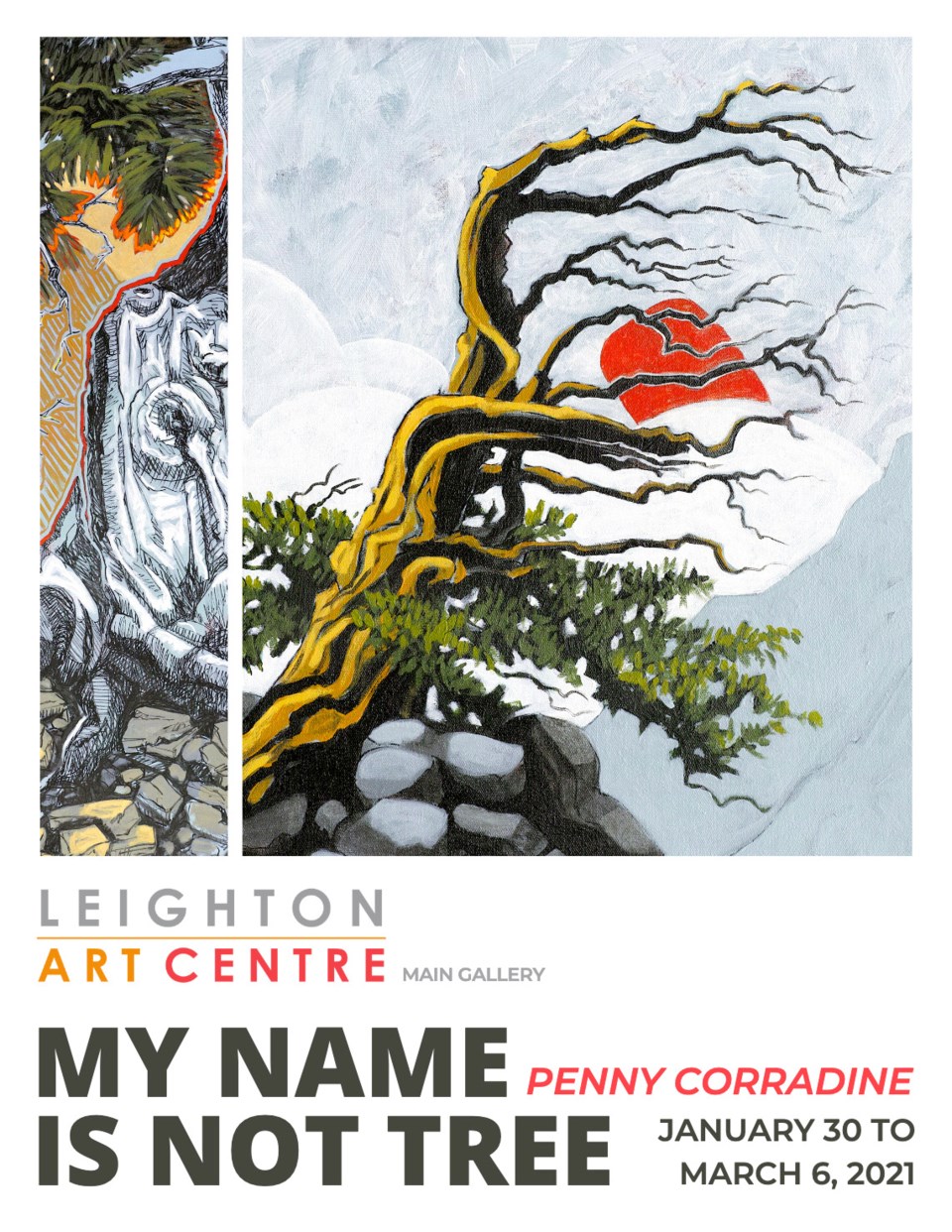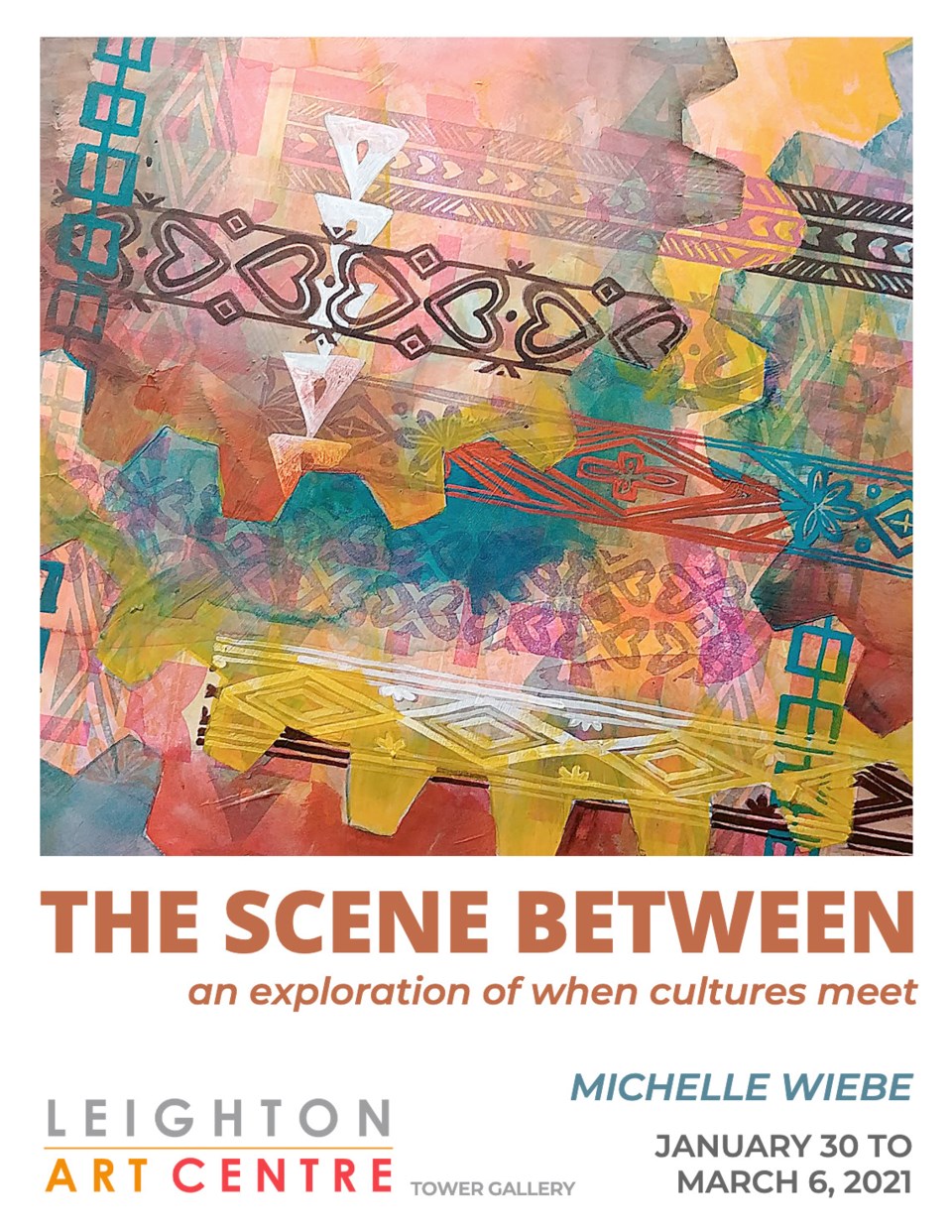The Leighton Art Centre is adding two new exhibits to its collection.
While remaining closed during restrictions due to COVID-19, the Millarville-area art gallery has continued to curate works for viewing online.
The recently renewed online catalogue will allow viewers to browse items in an exhibit with the option to purchase available.
 "My Name Is Not Tree" by Penny Corradine. Courtesy Leighton Art Centre
"My Name Is Not Tree" by Penny Corradine. Courtesy Leighton Art Centre
My Name Is Not Tree by Penny Corradine
Influenced by the natural world, Alberta artist Penny Corradine’s exhibit revolves around seeing trees not as vegetation, but as individuals.
“It’s a wonderful show, the pieces are giant works on canvas,” said exhibitions manager Lindsay Corbet.
“The focus is the personalities of trees, like figure drawings of trees.”
In her artist statement, Corradine expressed the role trees play in her work.
“Trees, for me, have always had a wonderful figurative sense about them and I’ve seen them as a type of life-drawing session, the way they twist and turn or stretch up for the sky,” Corradine said in her artist statement.
“I want these paintings to speak for trees. I want the paintings big and assertive. I don’t want the trees to be insignificant sticks in the ground or clumps of green shapes, just add-ons to a pretty picture.
“The woods have a mystery that envelopes me: I feel I am being allowed into a sacred space. I want to reciprocate with reverence."
 "The Scene Between - an exploration of when cultures meet" by Michelle Wiebe. By Courtesy Leighton Art Centre
"The Scene Between - an exploration of when cultures meet" by Michelle Wiebe. By Courtesy Leighton Art CentreThe Scene Between: An Exploration of When Cultures Meet by Michelle Wiebe
In her first solo exhibition at Leighton, Michelle Wiebe uses vivid lino block prints to explore heritage that was lost to previous generations of her family in what she describes as a process of “Loss, Searching and Appearance.”
Part Scottish, French and Ojibwe, Wiebe said in a phone interview that the work was exploring roots she had to discover as an adult.
“My family is so distant from these cultures, in that traditional Canadian melting pot experience, where we're not living in a community where that is the predominant expense expression of culture,” Wiebe said.
“Growing up, me and my siblings, we, you know, we heard occasional stories about our parents’ childhood, but we didn't live near our grandparents.”
Wiebe said that knowing her fathers upbringing stifled his ability to celebrate his indigenous heritage motivated her to explore it.
“Seeing my dad’s story and his journey, and being more and more able to embrace the indigenous side of his upbringing and heritage is also expressing that sense of loss," she said.
To her the process was about exploring her own story in the context of her mixed heritage from the context of someone who had been long disconnected.
“For me, it was more important to look at the references of those cultures, and then combine them to express them in my own voice in my own way," Wiebe said. “To be influenced by, but not mimicking, would be the way that this all kind of came together.
“Especially when you have indigenous heritage, but you're not connected to the community. It's a very sensitive place to go.
“If you're in Canada, and you're disconnected, either because your family immigrated, and you've lost that homeland connection, or through whatever circumstances. That's valid, and that's part of your own story.”
The Leighton Art Centre's collections can be viewed at https://leightoncentre.org



